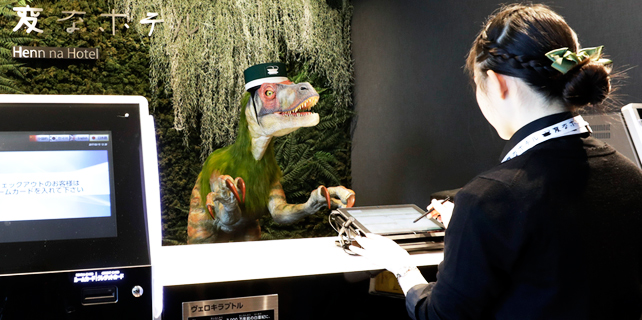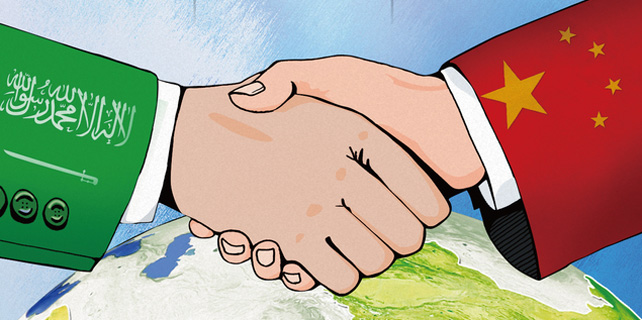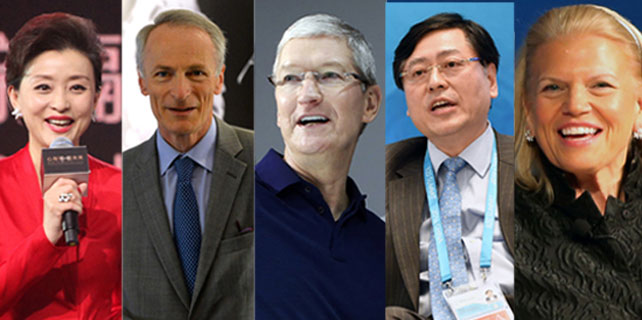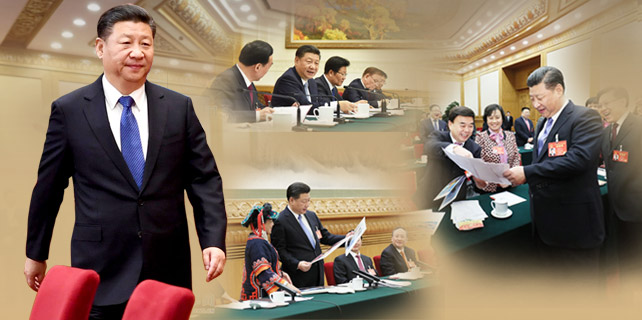It's a family affair for supermarket's iconic supremo
Perhaps it was fate that Kwai Tsun (also known as Stanley) Tse would end up with a supermarket empire called See Woo with a turnover of 70 million pounds ($85.8 million) and 350 employees after his family started a small grocery store in Hong Kong a century ago.
"The first See Woo, which means 'four brothers together', was set up by my father's brothers. My father died when I was very young, so my mother and her sister-in-law ran the shop," says Tse, 74. "So it's a family affair!"
He has become an icon of success in the Chinese community in the UK, having been showered with awards, which are on display in the conference room of See Woo's headquarters in Northwest London along with numerous photographs of him meeting, among others, the Queen and Prince Charles.
He says he wants to retire but then lets out his trademark, avuncular chuckle.
"I won't fully retire. I don't want to sit around watching TV," he says.
The See Woo Group started as one of the first supermarkets selling Far Eastern groceries in Chinatown in 1975. It has since expanded to several cash and carries, and restaurants that have proved popular not only with Chinese people but a wide customer base.
The company remains a family concern. His daughter, one of his three children, now also works for the company, which is keeping an eye on future expansion, such as more shops and internet sales.
He moved to the UK when he was only 17, joining his elder brother who had tried to persuade him to stay at school.
"I gave up on studying, which I never really took to. In those days, you could get 16 pounds for every (Hong Kong) dollar, which I found very attractive!" he says. "In those days, it was easy to move to the UK from Hong Kong, all you needed was a letter of invitation to get your passport. I told my brother that if he didn't give me a letter, I would become a policeman, which was considered very risky. He soon changed his mind and sent me the letter."
His brother set him to work in the kitchen of the restaurant "to keep me away from girls!" But within a couple of years, Tse had set up his first restaurant, one of several that he ran until founding See Woo.
He looks back on those days with nostalgia. "It was very hard work. The pubs would shut at 11 pm and people would come in drunk and keep us working until at least 1 am," he says. "But we were very happy especially when England won the World Cup in 1966."
One of his restaurants, The Lantern House in north London, was a magnet for the celebrities in the late 1960s, including Roger Moore who played James Bond and the actress Barbara Windsor. He met his wife through the restaurant trade. "She came to eat with her family. She was very beautiful," he says. "We got married in 1968."
One day his elder brother came to him with the idea of starting a grocery store.
"There were two or three planeloads of Chinese arriving every day and they were opening restaurants and takeaways," he says. "So, there was a lot of demand for groceries but nowhere for them to buy them." The first See Woo supermarket, still their flagship store, opened in Lisle Street in the heart of London's Chinatown but in those days the street was filled with lots of electrical shops, he says.
Tse built up a network of around 15 suppliers in China, Malaysia, Singapore and across the Far East whom he still deals with several decades later.
"I like to build up good relationships so you know what you're buying from people you trust. They are good friends."
His eldest son went to Oxford University and is an arbitration lawyer while his younger daughter recently finished studying interior design.
"I want her to have experience outside the company. I don't want her to walk in here and say 'my dad's the boss'."
He takes great joy in his charitable giving. See Woo as a company gives a great deal but he also personally likes to make donations to many different organizations and proudly shows a folder containing all the thank you letters he has received from them."I only give 30 pound a year to each but there are lots of them and it all adds up."









